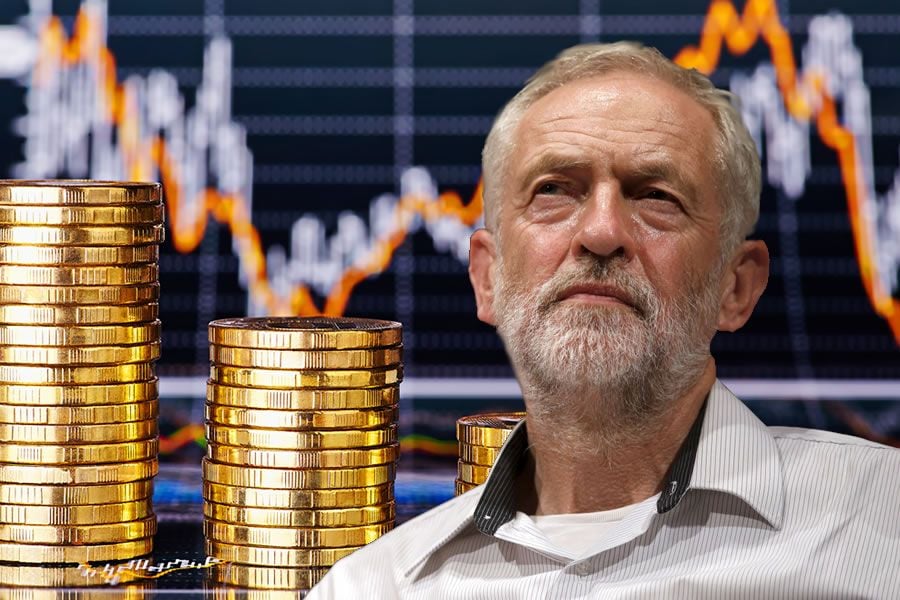Corbyn Finally 'Gets it' on Immigration, but for the Pound this Spells Further Weakness

Pound Sterling remains resolutely driven by sentiment concerning Brexit at present, and therefore headlines matter.
The latest developments on this front are significant with the Labour party confirming they support the restriction of free movement of EU nationals.
The Labour leader, in a speech on Tuesday on Brexit, says he is not wedded to the free movement of EU citizens as a point of principle.
He would seek to limit immigration if it meant protecting British jobs and pay.
The move will be taken as a tacit approval for the Government to put immigration restrictions as a red-line in upcoming negotiations.
It also suggests there will not likely be any bounce in Sterling should the UK's supreme court rule in favour of giving Parliament more of a say in the conditions attached to triggering Article 50 in March.
The thinking was that Parliament would seek full membership to the single market, and in doing so allow for the free movement of EU citizens.
But with Labour now opposed to this, it seems even Parliament will now be willing to make a the required trade-off for the UK to secure its borders.
Expect Sterling to remain under pressure until actual details start emerging from negotiations.
The decision by Corbyn to back immigration restrictions is inevitable if we consider the huge turnout in support for Brexit from Labour's traditional constituencies.
And with immigration being the main issue for voters who backed Brexit the party would put itself at odds with their core vote were they not to back a restriction on free movement.
Of course, the problem for Labour now is that they will alienate themselves from the urban, cosmoplitan and younger voting base who are attracted to Labour's left-wing policies but are pro-Europe.
They are now targets for the Liberal Democrats who will surely position themselves as a party willing to take the UK back into Europe.
That said, it appears anythign Corbyn says must be taken with a pinch of salt as the aftermath of recent policy announcements has been marked by climbdowns and chaos.
His ‘relaunch’ speech – stating he is “not wedded to freedom of movement” – was altered, confusingly, by adding: “But I don’t want that to be misinterpreted, nor do we rule it out.”
On high pay, Corbyn sparked even greater confusion, when he suddenly floated – then quickly dropped – an ill-thought out proposal to impose a legal maximum salary.
It was replaced by a plan for maximum pay ratios, but only at companies taking Government contracts.
Any salary above £150,000 at those firms would also have to be signed off by the Cabinet Office, as those of high-earners in the public sector currently are.
However, even those tough proposals could not disguise the U-turn.



